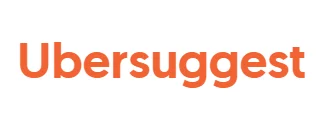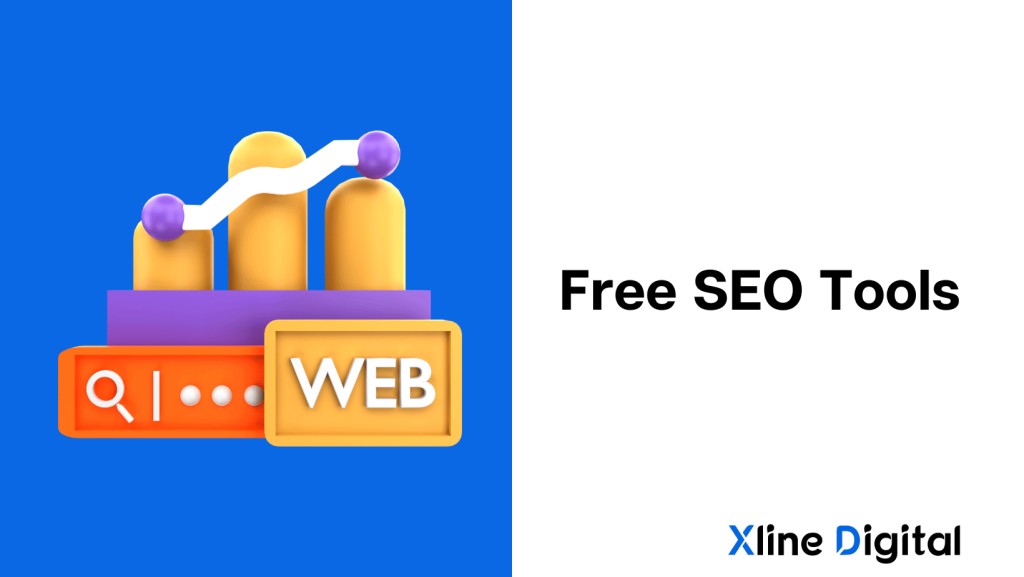Free SEO Tools Introduction:
Search engine optimisation (SEO) is crucial to the success of online businesses in today’s digital environment. Even if there are a tonne of paid SEO tools out there, website owners may also benefit from a wide selection of free choices to raise their organic traffic rankings. In order to assist you choose which tools to use in your SEO plan, this post will present a thorough analysis of free SEO tools, outlining their advantages and disadvantages.
Google Search Console

Google Search Console (previously known as Google Webmaster Tools) is a free web service offered by Google that provides website owners with valuable insights and tools to monitor and improve their website’s performance in Google search results. It offers a range of features designed to help optimize a website for search visibility. Here is a detailed review of Google Search Console, including its pros and cons:
Pros:
- Performance Tracking: Google Search Console provides detailed information about how your website performs in Google search results. It offers data on the number of clicks, impressions, average position, and click-through rates (CTRs) for specific keywords and pages. This data allows you to track your website’s progress, identify trends, and optimize your content accordingly.
- Indexing Insights: The tool provides essential data about how Google crawls and indexes your website. It alerts you to indexing issues, such as crawl errors, broken pages, or duplicate content. With this information, you can rectify technical issues that may hinder your website’s visibility in search results.
- Keyword Data: Google Search Console offers a “Performance” report that shows the keywords driving traffic to your website. It provides valuable insights into the queries users are typing to find your site. This information can help you optimize your content to target relevant keywords and improve your rankings.
- Sitemaps Submission: The tool allows you to submit XML sitemaps, which helps Google crawl and understand the structure of your website more efficiently. It also notifies you if there are issues with your sitemaps, such as URLs not being indexed or errors in the sitemap file.
- Backlink Monitoring: Google Search Console provides data on the external websites linking to your site. While it may not show all backlinks, it gives you a snapshot of the most significant ones. This information can help you identify high-quality backlinks, monitor link-building efforts, and address any spammy or low-quality links that could harm your website’s reputation.
Cons:
- Limited Keyword Data: While Google Search Console provides valuable keyword data, it has limitations compared to dedicated keyword research tools. The tool only shows data for keywords that have generated impressions and clicks, meaning it may not capture all potential keyword opportunities for your website.
- Data Delays: The data in Google Search Console may not be real-time and can sometimes be delayed by a few days. This delay can be a drawback when you require up-to-the-minute information on your website’s performance or need to address issues promptly.
- Limited Advanced Features: Google Search Console is primarily focused on providing insights into a website’s performance in Google search results. It may lack some advanced features offered by premium SEO tools, such as in-depth competitor analysis, rank tracking, or content optimization suggestions.
Google Search Console is an indispensable tool for website owners and SEO professionals. It offers valuable insights into a website’s performance, indexing status, and keyword data. While it has its limitations, the tool’s benefits outweigh its drawbacks, especially considering it is entirely free to use. By leveraging the data and features provided by Google Search Console, you can optimize your website for better search visibility, fix technical issues, and monitor your progress over time.
Google Analytics

Google Analytics is a free web analytics tool offered by Google. It provides website owners with comprehensive data and insights about their website’s performance, user behavior, and conversion metrics. Here is a detailed review of Google Analytics, including its pros and cons:
Pros:
- In-depth Website Metrics: Google Analytics offers a wide range of metrics and reports to track and analyze your website’s performance. It provides data on website traffic, including the number of visitors, pageviews, bounce rates, session durations, and more. These metrics help you understand how users interact with your site and identify areas for improvement.
- User Behavior Analysis: The tool provides insights into user behavior, such as the pages users visit, the paths they take on your site, and the actions they perform. You can analyze this data to optimize your website’s navigation, identify popular content, and improve user experience.
- Conversion Tracking: Google Analytics allows you to set up conversion tracking to monitor specific goals and actions on your website. Whether it’s form submissions, purchases, or other desired actions, you can track and measure the effectiveness of your marketing campaigns and website optimization efforts.
- Traffic Sources Analysis: The tool provides data on the sources driving traffic to your website, including organic search, referrals, social media, paid advertising, and more. This information helps you understand which channels are most effective in driving traffic and optimize your marketing strategies accordingly.
- Customization and Integration: Google Analytics offers extensive customization options, allowing you to create custom reports, segments, and dashboards tailored to your specific needs. It also integrates seamlessly with other Google tools like Google Ads, allowing you to track and analyze your advertising campaigns alongside your website data.
Cons:
- Learning Curve: Google Analytics has a steep learning curve, especially for beginners. With its extensive features and complex interface, it can be overwhelming to navigate and interpret the data effectively. It may require some time and effort to fully grasp the tool’s capabilities and make the most of its insights.
- Data Delay: Real-time tracking in Google Analytics is not always accurate, and there can be a delay in data reporting. This delay can be a drawback if you need up-to-the-minute information on your website’s performance or if you require immediate actions based on the data.
- Privacy Concerns: As a third-party analytics tool, Google Analytics collects and processes user data, raising concerns about privacy and data security. It is essential to ensure compliance with privacy regulations and take necessary measures to protect user data when using the tool.
- Limitations in Free Version: While Google Analytics offers a robust set of features in its free version, some advanced features are only available in the paid version, Google Analytics 360. These advanced features include advanced attribution modeling, data-driven attribution, and more extensive data sampling options.
Google Analytics is a powerful and widely used web analytics tool that provides valuable insights into website performance and user behavior. Despite its learning curve and data delay, the tool’s benefits make it an essential tool for website owners and marketers. By leveraging the data and insights from Google Analytics, you can make informed decisions, optimize your website, and improve your digital marketing strategies for better results.
Yoast SEO

Yoast SEO is a popular WordPress plugin designed to optimize on-page SEO elements and improve the search engine visibility of websites. It offers a range of features and functionalities to help website owners optimize their content and improve their rankings. Here is a detailed review of Yoast SEO, including its pros and cons:
Pros:
- Content Optimization: Yoast SEO provides real-time content analysis and optimization suggestions as you write or edit your content. It checks factors such as keyword usage, readability, meta tags, headings, and more to help you create SEO-friendly content. This feature ensures that your content is optimized for target keywords and improves your chances of ranking higher in search engine results.
- Readability Analysis: In addition to keyword optimization, Yoast SEO also evaluates the readability of your content. It checks factors such as sentence structure, paragraph length, use of transition words, and more. By ensuring your content is easily readable and understandable, you can improve user experience and engagement.
- Technical SEO Assistance: Yoast SEO handles various technical aspects of SEO, such as generating XML sitemaps, managing canonical URLs, and controlling the indexability of specific pages. It helps you manage these technical elements effortlessly without needing extensive technical knowledge.
- Meta Tags and Snippets: The plugin allows you to customize meta titles and descriptions for each page or post. This feature enables you to optimize your snippets, which are the brief summaries displayed in search engine results. Optimized snippets can increase click-through rates and improve the visibility of your content.
- Social Media Integration: Yoast SEO offers social media integration, allowing you to control how your content appears when shared on social platforms. You can set custom titles, descriptions, and images to ensure your content looks appealing and optimized when shared on platforms like Facebook and Twitter.
Cons:
- Limited to WordPress: Yoast SEO is exclusively available for WordPress websites. If you’re using a different content management system (CMS), you won’t be able to leverage the features and functionalities of this plugin. However, there are alternative SEO plugins available for other platforms.
- Advanced Features in Premium Version: While the free version of Yoast SEO offers a robust set of features, there are additional advanced features available in the premium version, such as internal linking suggestions, content insights, and redirect management. These advanced features can be beneficial for larger websites or those with more complex SEO requirements.
- Over-reliance on Yoast Suggestions: While Yoast SEO provides valuable optimization suggestions, it’s essential not to rely solely on these recommendations. SEO is a complex field, and following Yoast’s suggestions blindly may lead to formulaic and repetitive content. It’s crucial to use Yoast SEO as a tool and complement it with your own SEO knowledge and best practices.
Yoast SEO is a widely used and highly regarded WordPress plugin for on-page SEO optimization. Its features for content optimization, readability analysis, technical SEO assistance, and social media integration make it a valuable tool for website owners looking to improve their search engine visibility. However, it’s important to remember that Yoast SEO should be used as a guide, and it’s essential to have a well-rounded understanding of SEO principles to achieve optimal results.
Moz Link Explorer

Moz Link Explorer is a popular tool developed by Moz, a well-known SEO software provider. It is designed to help website owners and SEO professionals analyze and understand the backlink profile of a website. Here is a detailed review of Moz Link Explorer, including its pros and cons:
Pros:
- Backlink Analysis: Moz Link Explorer provides comprehensive data and insights into a website’s backlink profile. It offers information about the number of backlinks, referring domains, anchor text usage, and the authority of linking domains. This data helps you understand the quality and quantity of backlinks pointing to your site, which is crucial for SEO.
- Domain Authority (DA) and Page Authority (PA): Moz has developed proprietary metrics called Domain Authority (DA) and Page Authority (PA) to assess the overall strength and quality of a website or a specific webpage. These metrics help you gauge the relative importance of your site or pages compared to your competitors, making it easier to prioritize link-building efforts.
- Competitor Analysis: Moz Link Explorer allows you to analyze the backlink profiles of your competitors. You can compare your site’s backlink metrics with those of your competitors to identify potential link-building opportunities and gain insights into their SEO strategies.
- Link Building Opportunities: The tool helps you discover new link-building opportunities by identifying websites that are linking to your competitors but not to your site. This feature allows you to find relevant and authoritative websites that could potentially link to your site, thereby improving your backlink profile.
Cons:
- Limited Functionality in Free Version: While Moz Link Explorer offers a free version, it has limitations compared to Moz’s paid plans. The free version provides limited access to backlink data, and some advanced features are only available in the paid plans, such as historical data, advanced filtering options, and competitor tracking. To access the full range of features and more comprehensive data, a subscription to Moz’s paid plans is required.
- Data Limitations: Moz Link Explorer may not capture and display all backlinks to a website. The tool relies on its own web crawler, which may not index all backlinks on the internet. This limitation means that some backlinks may not be included in the data provided by Moz Link Explorer.
- Data Refresh Rate: The data in Moz Link Explorer may not update as frequently as desired. While Moz strives to provide timely data, there may be delays in capturing new backlinks or updating metrics like Domain Authority. This delay can sometimes be a drawback if you require real-time or up-to-date information.
Moz Link Explorer is a valuable tool for backlink analysis and understanding the link profile of a website. Its features for backlink analysis, competitor research, and link-building opportunities make it a useful resource for SEO professionals. However, the limitations of the free version and the potential data limitations should be considered. It’s worth noting that Moz Link Explorer is just one tool among many available for backlink analysis, and it’s important to combine it with other tools and strategies for a comprehensive understanding of your website’s backlink profile.
Ubersuggest

Ubersuggest is an SEO tool developed by Neil Patel, a well-known digital marketer. It aims to provide website owners and marketers with insights and data to improve their search engine optimization efforts. Ubersuggest offers various features and functionalities to analyze keywords, perform competitive analysis, and track website rankings. Here is a detailed review of Ubersuggest, including its pros and cons:
Pros:
- Keyword Research: Ubersuggest offers robust keyword research capabilities. You can enter a seed keyword or domain to generate keyword ideas, search volumes, keyword difficulty scores, and related keywords. This helps you identify relevant keywords for your content and optimize your website accordingly.
- Competitive Analysis: Ubersuggest allows you to analyze your competitors’ websites to gain insights into their organic keywords, top-ranking pages, and backlink profiles. This information helps you understand your competition, identify content gaps, and develop strategies to outrank them in search results.
- Content Ideas and Suggestions: Ubersuggest provides content ideas based on popular topics and search trends. It also offers content suggestions to optimize your existing pages for target keywords. These features help you create high-quality, relevant content that resonates with your audience and attracts organic traffic.
- Backlink Analysis: The tool offers a backlink analysis feature that provides insights into the backlink profiles of your website and your competitors. You can view the number of backlinks, referring domains, and anchor text distribution. This data assists in identifying valuable link-building opportunities and optimizing your backlink strategy.
- Rank Tracking: Ubersuggest allows you to track your website’s rankings for specific keywords over time. You can monitor your progress, identify ranking fluctuations, and assess the effectiveness of your SEO efforts. This feature helps you measure the impact of your optimizations and make data-driven decisions.
Cons:
- Limited Functionality in Free Version: Ubersuggest offers a free version with limitations on data access and some advanced features. To access the full range of functionalities, including historical data, competitor analysis, and more comprehensive reports, a subscription to Ubersuggest’s paid plans is required.
- Data Accuracy: While Ubersuggest provides valuable insights, it’s important to note that the accuracy of data may vary. Keyword search volumes and difficulty scores are estimations, and the backlink data may not capture all links. It’s recommended to use Ubersuggest as a directional tool and cross-reference data with other sources.
- User Interface and Navigation: Some users find the Ubersuggest interface and navigation less intuitive compared to other SEO tools. The layout and organization of features may require some getting used to, particularly for beginners or those new to SEO.
Ubersuggest is a comprehensive SEO tool that offers valuable features for keyword research, competitive analysis, content optimization, and rank tracking. Its capabilities can help website owners and marketers improve their search engine rankings and drive organic traffic. While the free version provides useful functionalities, the limitations and data accuracy should be considered. Ubersuggest can be a valuable addition to your SEO toolkit, but it’s important to supplement it with other tools and strategies to gain a comprehensive understanding of your SEO performance.



